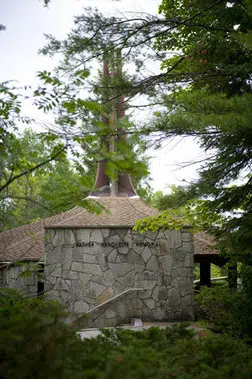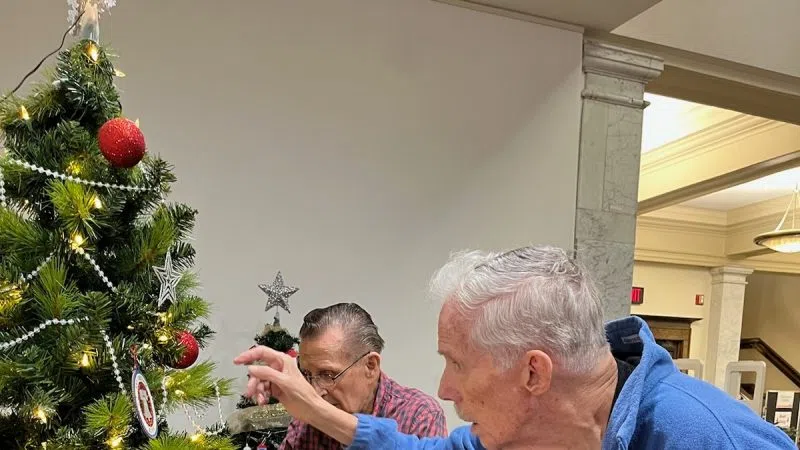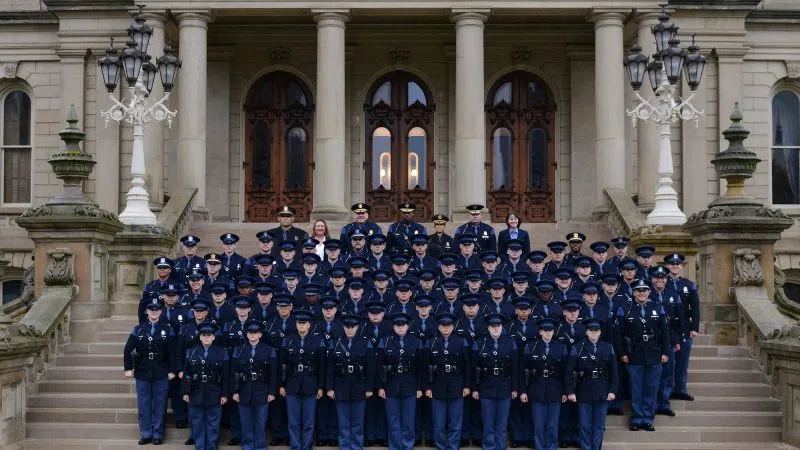In June 2016, representatives from local, state and tribal governments and public and private organizations convened in St. Ignace, Michigan, to discuss the future of the Father Marquette National Memorial.
Located in Straits State Park, the memorial celebrates the life and legacy of Jacques Marquette, the French Jesuit missionary and explorer who founded Sault Ste. Marie in 1668 and St. Ignace in 1671. Largely missing from the current memorial are the stories of the indigenous people and early French settlers with whom Marquette worked and lived.
The initial meeting evolved into the Straits of Mackinac Heritage Center Collaborative, whose purpose is to create a place that inspires reflection, learning and healthy lifestyles through cultural and natural resource-based experiences built around the Anishinaabe and French heritage of the region.
Initial collaborative members include Moran Township, the Sault Ste. Marie Tribe of Chippewa Indians, Lake Superior State University, the Mackinac Straits Health System and the Michigan Department of Natural Resources.
The National Endowment for the Humanities recently awarded the collaborative a $500,000 Challenge Grant to complete planning and begin construction on the site. The grant requires the collaborative to raise $1.5 million in matching funds over the next five years.
The collaboratives vision is for a place that welcomes, engages and excites visitors with indoor and outdoor experiences that encourage deeper understanding of the St. Ignace region.
“People, goods and the history of the Great Lakes have long come together at the Straits of Mackinac,” said Sandra Clark, Michigan History Center director. “The site will remain a place where people continue to gather and learn from each other.”
That vision includes:
Outdoor space for powwows and other experiences that help visitors understand Anishinaabek culture, both past and present.
Expanded information on early French life at the Straits at the Father Marquette National Memorial.
A central building with space for interpretation, workshops, classes and conversation.
Indoor and outdoor interpretative and recreational experiences that address multicultural experiences on topics such as water, diet and ways of life.
A trail hub connected to the Iron Belle Trail and a dedicated, safe recreational connection across I-75.
The collaboratives next step is to develop a schematic site plan based on the vision and the 2015 general management plan for Straits State Park that focuses on visitor education and interpretation of the natural, cultural and historic resources related to the Father Marquette National Memorial and the region.
This process will include community open houses seeking input on the draft designs, beginning in 2019. The collaborative also is seeking additional for-purpose and for-profit organizations and business to join the effort as partners.
The Father Marquette National Memorial was established by the National Park Service in 1975 and opened to the public in 1976 in the state-managed Straits State Park. A state-run museum opened at the site in 1979, but was destroyed by fire in 2000.
Today, the memorial and Straits State Park are jointly managed by two DNR divisions: Parks and Recreation and the Michigan History Center.
The initial community meetings in June 2016 grew into todays formalized collaborative, which worked together to apply for federal grant funding. The partners bring unique and complimentary perspectives and expertise needed to make the vision a reality.
The Michigan History Center, Lake Superior State University and the Sault Ste. Marie Tribe of Chippewa Indians will lead the research and development of historical information at the site. Tribal chairperson Aaron Payment said, “I can confirm our commitment to assist in the guidance of the project’s representation of Anishinaabe history and culture.”
Moran Township, the DNR and Mackinac Straits Health System will lead the development of recreational experiences and health-based information. Mike Grisdale, marketing and foundation director for the Mackinac Straits Health System, said, “It is a wonderful opportunity to promote learning and reflection of the heritage in the Straits region, as well as healthy lifestyles through cultural and natural resources-based experiences.”
The collaborative applied for and was awarded a National Endowment for the Humanities Infrastructure and Capacity-Building Challenge Grant to complete a formalized plan and began construction. Only 29 grants were made across the country in this first year of the challenge grant program, and this is the only challenge grant awarded in Michigan.
The grant requirements include a match of $1.5 million to be raised over five years. Heritage Michigan, the private foundation that supports the Michigan History Center, will lead the effort to raise the required match on behalf of the collaborative.
The NEH program seeks to strengthen the institutional base of the humanities in the United States through matching grants to libraries, museums, archives, colleges and universities, historic sites, scholarly associations and other cultural institutions for efforts that build institutional capacity or infrastructure for long-term sustainability.
These challenge grants, which require a match of non-federal funds, may be used toward capital expenditures such as construction and renovation projects, purchase of equipment and software, sharing of humanities collections between institutions, documentation of lost or imperiled cultural heritage, sustaining digital scholarly infrastructure, and preservation and conservation of humanities collections.
Over the next several months, the collaborative will begin seeking funds for the $1.5 million match and partnerships with additional organizations that share the collaboratives values and goals. The collaborative has created a website at www.straitsheritage.org, which will provide more detailed project and fundraising information as they are developed.























